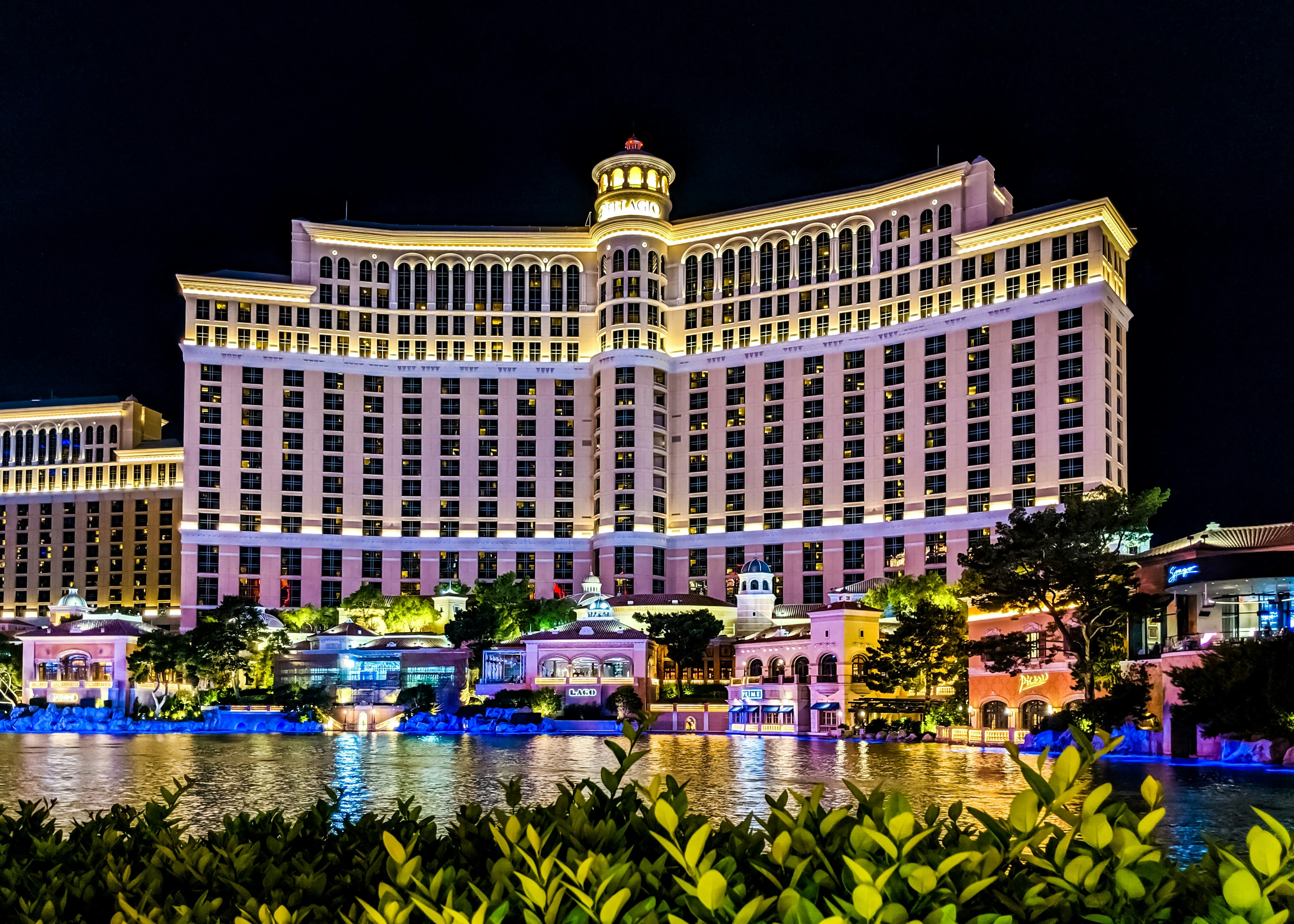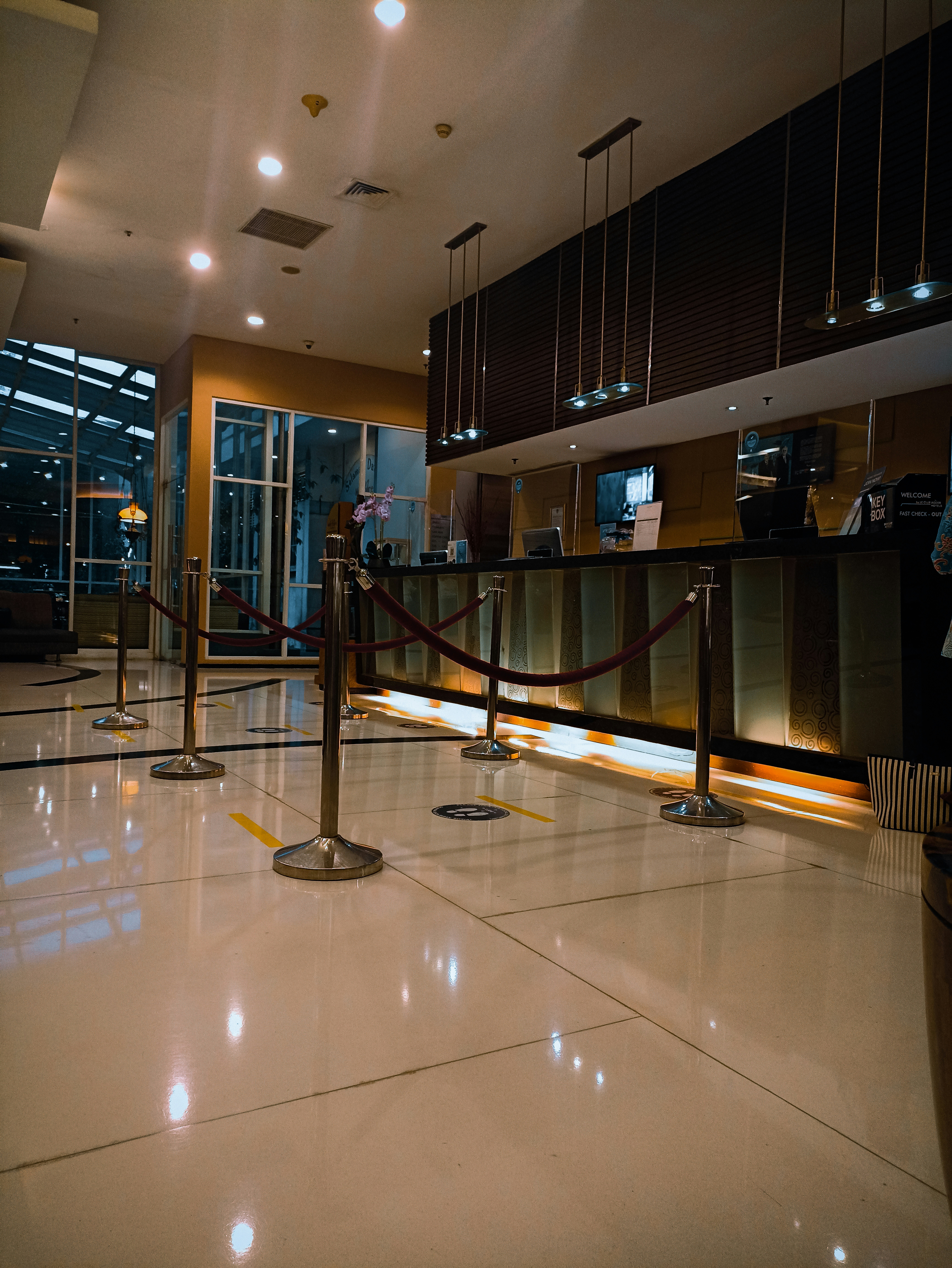Introduction to the Hotel Industry
The hotel industry is a crucial component of the global tourism and hospitality sector, serving as a primary accommodation option for travelers around the world. It encompasses a diverse range of establishments, each designed to meet varying preferences and budgets. Among these accommodations, hotels are often the most recognized, ranging from budget-friendly chains to luxury brands that offer a wealth of amenities and services. In addition to hotels, there are motels, which typically provide more basic lodging often situated along highways, making them favorable for road-trippers. Resorts represent another category, offering a combination of lodging, recreational facilities, and entertainment, usually in picturesque settings, which makes them popular for vacationers seeking relaxation and leisure.
Furthermore, boutique hotels have emerged as a distinctive segment characterized by their unique themes, personalized service, and intimate atmospheres. These establishments attract guests looking for memorable experiences that often reflect local culture and art. The importance of the hotel industry extends beyond merely providing a place to stay; it underpins the broader economy by creating jobs, supporting local businesses, and generating significant tax revenues. As travel demand continues to grow, the hotel sector plays a vital role in accommodating the diverse needs of domestic and international travelers alike.
The significance of the hotel industry is further exemplified by its adaptability in the face of shifting market trends and consumer preferences. With increasing emphasis on sustainability and eco-friendly practices, many hotels have begun to incorporate green initiatives, which cater to environmentally-conscious travelers. Additionally, advancements in technology, such as the implementation of digital check-ins and personalized marketing, have transformed how hotels engage with guests. This ongoing evolution within the hotel industry isn’t merely a response to immediate trends, but an essential strategy for staying competitive and relevant in an increasingly globalized world. Each of these factors contributes to the distinctive nature of the hotel industry, highlighting its pivotal role in shaping memorable travel experiences.
The Evolution of Hotels Through History
The evolution of hotels can be traced back to ancient civilizations, where the concept of hospitality was a cultural norm. In ancient Greece and Rome, travelers sought refuge in inns and guesthouses, which provided basic shelter and food. These establishments often featured communal dining areas and simple accommodations, catering primarily to merchants and travelers. The need for safe and comfortable lodging during journeys was paramount, leading to the growth of these early hospitality establishments.
As society progressed through the Middle Ages, accommodations began to evolve. Coaching inns became popular across Europe, serving as essential stopovers for those traveling long distances. These establishments offered more than just a bed; they provided stabling for horses and a place for social gatherings. This period saw notable advancements in service and amenities, which would lay the foundation for modern hospitality standards.
The 18th and 19th centuries marked significant milestones in the hotel industry. The rise of the wealthy class and the advent of the Industrial Revolution resulted in increased travel for leisure and business. This era saw the establishment of grand hotels, such as the Ritz in Paris and The Savoy in London, which epitomized luxury and opulence. These iconic hotels were not just places to stay; they became symbols of prestige, attracting notable figures from various domains.
With the turn of the 20th century, technology began to reshape the hospitality landscape. The introduction of elevators, electricity, and indoor plumbing revolutionized hotel design and guest experience. As air travel became more accessible, hotels responded by introducing international brands, catering to a global clientele. Today’s luxury resorts elegantly blend comfort with modern technology, showcasing how the industry has adapted to societal changes and technological advances over the centuries.
Hotel Management: Behind the Scenes
Hotel management plays a crucial role in ensuring that hotel operations run smoothly, providing guests with an exceptional experience. Various roles exist within this domain, each contributing to the overarching goal of guest satisfaction and hotel profitability. At the forefront are the front desk staff, who serve as the hotel’s face, welcoming guests and managing reservations. These professionals must possess excellent communication skills and the ability to handle inquiries or issues promptly.
Beyond the front desk, housekeeping is essential for maintaining the cleanliness and comfort of guest accommodations. Housekeeping teams are tasked with ensuring that rooms are meticulously cleaned and well-stocked with amenities. This department’s efficiency directly impacts guest perceptions of the hotel. Furthermore, the roles of the housekeeping manager and supervisors are pivotal in training staff and maintaining high standards.
Catering and food services also play a significant role in hotel management, particularly for establishments featuring dining options. Chefs and culinary teams collaborate with catering managers to create menus that appeal to various palates and dietary needs. Service staff in this area must work closely with kitchen personnel to ensure seamless operations during events, banquets, and daily restaurant service.
Marketing and sales departments in hotel management are responsible for promoting the hotel’s offerings to attract guests. This involves creating targeted marketing strategies, handling social media platforms, and maintaining relationships with travel agencies and online booking platforms. Successfully merging these efforts requires collaboration among various teams, exemplifying the importance of teamwork within hotel management.
In essence, effective hotel management hinges on the synergy between diverse departments. Each role, whether it concerns guest services, maintenance, or administration, plays a vital part in delivering a cohesive and enjoyable experience for guests, emphasizing the multifaceted nature of hotel operations.
Understanding Hospitality Trends
The hospitality industry is continually evolving, driven by changing consumer preferences and advancements in technology. One of the most significant trends currently observed is the strong emphasis on sustainability. Hotels are increasingly adopting eco-friendly practices, such as sourcing local and organic foods, reducing energy consumption, and minimizing waste. This shift towards sustainable practices not only appeals to environmentally conscious travelers but also aids in enhancing the hotel’s overall brand image, aligning with global efforts to combat climate change.
Alongside sustainability, there is a growing demand for personalized guest experiences. Today’s travelers seek unique, tailored experiences that extend beyond standard hotel offerings. Hotels are leveraging technology to gather data on guest preferences and behaviors. This enables them to offer customized services, such as personalized room settings and curated local activities. The push for these individualized experiences highlights the desire for meaningful connections and memorable interactions during stays, reflecting a broader trend towards experiential travel.
The rise of digital technologies further shapes hospitality trends. From the implementation of contactless check-in and mobile room keys to the utilization of artificial intelligence for customer service, hotels are adopting innovative solutions to enhance guest convenience and safety. Mobile applications are becoming a vital part of the travel experience, allowing guests to manage their stay from their smartphones, including restaurant reservations and room service orders.
In summary, the current trends in the hospitality industry reveal a landscape that is becoming increasingly focused on sustainability, personalization, and digital advancement. As hotels strive to innovate to meet the changing needs of travelers, understanding these hospitality trends will be crucial for stakeholders aiming to thrive in this dynamic environment.
Unique Hotel Concepts and Themes
The hotel industry has witnessed a remarkable evolution, with many establishments embracing innovative concepts that cater to a diverse range of travelers. Unique hotel concepts not only serve as a form of accommodation but also offer an immersive experience that sets them apart. One of the most notable trends is the rise of eco-lodges, which prioritize sustainability while providing guests with a comfortable and luxurious stay. These lodges often feature renewable energy sources, local building materials, and conservation practices that help preserve the natural environment.
Another compelling theme in the hotel world is the emergence of themed hotels. These establishments can transport guests to another time or place, creating unforgettable experiences. For instance, fantasy-themed hotels often draw inspiration from literature or film, allowing guests to step inside their favorite story. Similarly, retro-themed hotels evoke nostalgia, with decor and amenities reminiscent of different eras. Such creativity attracts tourists who seek not just a place to sleep, but an experience that resonates with their interests.
Boutique hotels also embody a unique charm, distinguishing themselves by offering personalized service and distinctive design. These smaller accommodations often reflect the local culture, art, and culinary traditions, appealing to travelers looking for an authentic connection to the destination. Many boutique hotels curate their offerings around specific themes, such as art, history, or wellness, thus carving out a niche in the competitive hospitality sector.
In conclusion, the pursuit of unique hotel concepts and themes continues to drive innovation in the hospitality industry. By catering to specific audiences and emphasizing creativity, hotels around the world are redefining the traditional perception of accommodation and enhancing the overall travel experience.
Challenges Facing the Hotel Industry
The hotel industry is currently navigating a complex landscape marked by various challenges that threaten its stability and profitability. One significant challenge is economic fluctuations; changing economic conditions can deeply impact travel trends and consumer spending. When economies contract, disposable income tends to decrease, leading to reduced travel budgets. Hotels often experience diminished occupancy rates during such times, prompting cost-cutting measures that can affect service quality. This cyclical nature of the economy necessitates adaptability from hotel operators to manage both operational costs and guest expectations effectively.
Another crucial challenge comes from the rise of alternative lodging options such as Airbnb, which has transformed the way people experience travel. The increased availability of short-term rentals has intensified competition, forcing traditional hotels to reassess their value propositions. Many establishments are now diversifying their offerings to include unique experiences that cater specifically to changing consumer preferences. Innovative approaches to service, pricing strategies, and enhanced marketing efforts have become essential tools in maintaining relevance in this competitive landscape.
Moreover, global events such as pandemics have had profound implications for the hotel sector. The COVID-19 pandemic, for instance, led to an unprecedented decline in travel demand and significant shifts in health and safety protocols. Hotels have had to invest heavily in sanitation measures and contactless services to reassure guests, while also navigating restrictions that limit capacity and operations. In response, many hotels have implemented flexible booking policies and created bespoke packages designed for local travelers to encourage domestic tourism.
Despite these challenges, the hotel industry has demonstrated remarkable resilience. By leveraging technology, focusing on customer experience, and adapting to market trends, hotels are continually seeking to thrive in an ever-evolving environment. Through innovation and strategic planning, the hotel sector aims not only to survive but to emerge stronger in the face of ongoing challenges.
Guest Experience: What Makes a Stay Memorable
Creating a memorable guest experience is paramount for hotels seeking to maintain a competitive edge in the hospitality industry. Several factors contribute to an exceptional stay, notably customer service, amenities, personalization, and location. Each of these elements plays a crucial role in shaping the perceptions and overall satisfaction of guests during their stay.
First and foremost, customer service stands out as a fundamental aspect of the guest experience. Attentive and well-trained staff can significantly influence how guests feel about their stay. A warm welcome upon arrival, prompt responses to inquiries, and personalized interactions can transform a standard visit into a remarkable one. Hotel operators should invest in regular training for their personnel to ensure that staff members not only meet but exceed guest expectations.
Furthermore, the range and quality of amenities offered in a hotel can deeply impact the guest experience. Facilities such as spas, fitness centers, swimming pools, and dining options play a vital role in attracting guests. Moreover, providing complimentary services, such as breakfast or Wi-Fi, enhances overall satisfaction. Hotel management should regularly evaluate the amenities offered, ensuring they align with the preferences of their target market.
Personalization is another key factor that can make a stay memorable. Tailoring services to meet individual guest preferences fosters a sense of belonging and enhances loyalty. Utilizing technology and customer feedback can help hotels gather insights into guest preferences, enabling them to offer customized services such as room configurations, welcome amenities, or personalized recommendations for local attractions.
Lastly, the hotel’s location is a significant determinant of the guest experience. Proximity to tourist attractions, business districts, or leisure activities can greatly enhance a visitor’s stay. Hotel operators should emphasize their location advantages in marketing strategies and ensure easy accessibility to various points of interest to improve guest satisfaction.
The Future of the Hotel Industry
The hotel industry is on the cusp of significant change, driven by advancements in technology, shifting consumer behavior, and emerging market demands. As travelers increasingly prioritize unique experiences over traditional lodging, hotels are expected to evolve into experiential hubs that cater to diverse preferences.
One of the foremost trends shaping the future of the hotel industry is the integration of technology. Innovations such as artificial intelligence, smart room features, and mobile applications are reshaping guest experiences. For instance, contactless check-in and personalized room settings can enhance convenience and comfort. Additionally, AI-driven customer service chatbots are becoming commonplace, providing guests with instant assistance and optimizing operational efficiency.
Moreover, the emphasis on sustainable practices is growing, as environmental concerns resonate with today’s eco-conscious travelers. Hotels are increasingly adopting green initiatives, such as using renewable energy sources, reducing water consumption, and prioritizing local sourcing for food and amenities. In response to consumer expectations, future hotels will likely incorporate eco-friendly designs and offer sustainability certifications, positioning themselves as responsible choices in the hospitality landscape.
Shifts in consumer behavior also indicate a rising demand for flexibility in travel arrangements. As more travelers favor personalized services, hotels must adapt to this trend by offering curated experiences tailored to individual preferences. This could involve partnerships with local businesses, showcasing regional culture, and providing customized itineraries.
In summary, the future trajectory of the hotel industry appears to be centered on technology, sustainability, and consumer-centric approaches. As these factors come to define hotel operations, establishments that embrace innovation and adaptability will likely thrive in an ever-changing market. The response to these dynamics will not only revolutionize the hotel experience but also influence the broader travel ecosystem.
Conclusion
In the complex tapestry of global travel, hotels serve not only as places of lodging but as vital components that shape the experiences of travelers. These establishments act as gateways between diverse cultures, enabling guests to immerse themselves in local customs and traditions. Beyond mere convenience, hotels enhance the travel experience by offering comfort, security, and a sense of belonging, which is often essential for meaningful interactions with the surrounding community.
The hotel industry plays a crucial role in the economy, providing invaluable employment opportunities and contributing to the growth of local businesses. As travelers seek accommodations, they often unintentionally promote local economies through their purchases and activities, thereby fostering a symbiotic relationship between hotels and the destinations they inhabit. Each booking represents a connection between visitors and the local culture, igniting stories that resonate far beyond the walls of the hotel itself.
Furthermore, hotels serve as reflection points that embody the spirit and character of their locale. From the architecture illustrating historical influences to the culinary offerings that showcase local flavors, each hotel becomes a storyteller, relaying experiences that contribute to the rich, collective narrative of travel. For a traveler, the hotel is not just a resting place but a home away from home, where countless stories unfold with each guest’s arrival and departure.
As we consider the global travel landscape, it is essential to recognize the profound impact of the hotel industry in connecting people from various backgrounds while facilitating cultural exchange. In this light, hotels emerge as much more than mere facilities; they are an integral part of the journey, bridging gaps and enriching experiences for those who seek to explore the world. The next time you book a hotel, reflect on the stories that await, as they represent the lifeblood of travel itself.


